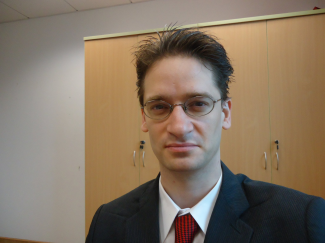Event

CEAS Issues in Contemporary East Asia Series
Immediately after the Second World War, Japan saw a rapid swell in the numbers of “New Religions.” One New Religion in particular came to dominate Japan’s religious landscape: Soka Gakkai, or the “Value Creation Study Association.” Soka Gakkai grew far beyond conventional “religion” parameters and today it remains an influential presence in electoral politics, education, media, finance, and numerous other spheres. In this presentation, Professor McLaughlin provides an overview of Soka Gakkai’s growth in postwar Japan and brings its story up to the present by drawing on his ethnography as a non-member participant observer. He suggests that Soka Gakkai’s appeal to converts can be explained by ways it grew mimetic of the modern Japanese nation-state. The paper will consider implications of Soka Gakkai’s recapitulation of a utopian version of the Japan in which its founders came of age and how the organization’s institutions and practices resonate with legitimacy-granting frameworks that undergird modern national belonging.
Levi McLaughlin is Assistant Professor at the Department of Philosophy and Religious Studies at North Carolina State University, where he teaches courses on religion in Asia. He received his Ph.D. from Princeton University after previous study at the University of Tokyo, and he holds a B.A. and M.A. in East Asian Studies from the University of Toronto. He has worked as a research assistant at Kokugakuin University in Tokyo and was a visiting research fellow at the Asia Research Institute, National University of Singapore and the Center for Asian and Pacific Studies at the University of Iowa.
Levi's research focuses primarily on religion in modern and contemporary Japan and considers what Japanese religions tell us about how religious institutions, doctrines, practices, and dispositions take shape in the contexts of politics, education, and other spheres. Levi is the first non-member, non-Japanese researcher to spend years as a participant observer of Soka Gakkai, Japan's largest new religious movement, and his publications and presentations to date have centered on grassroots-level experiences of Soka Gakkai members in Japan and how this organization challenges widely accepted parameters of "religion." Levi's most recent scholarship investigates political activism by Soka Gakkai members and ways the category "religion" has transformed after religious responses to the compound disasters in Japan of March 11, 2011.
Cosponsored with the Center for Asian Law